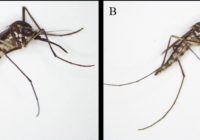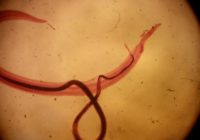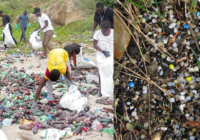Armigeres subalbatus, a potential vector for Zika virus

Prof. Xiaoguang Chen and his team from Southern Medical University, China investigated the infection and transmission of Armigeres subalbatus to Zika virus and dengue virus. They found that Zika virus but not dengue virus (serotype 2) can infect Ar. subalbatus via blood meal and artificial urine, and the infected mosquitoes can transmit Zika virus to suckling mice by bite. This study was recently published in Infectious Diseases of Poverty.


